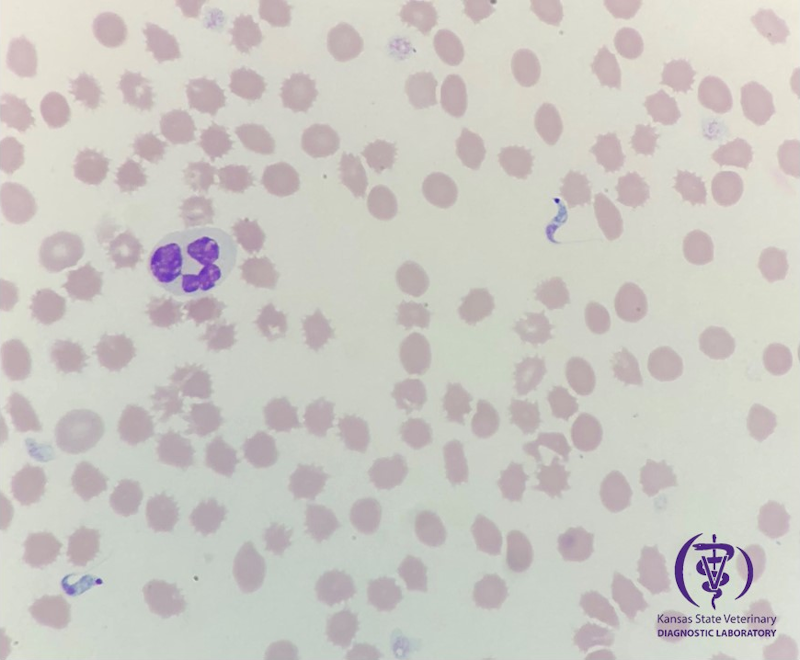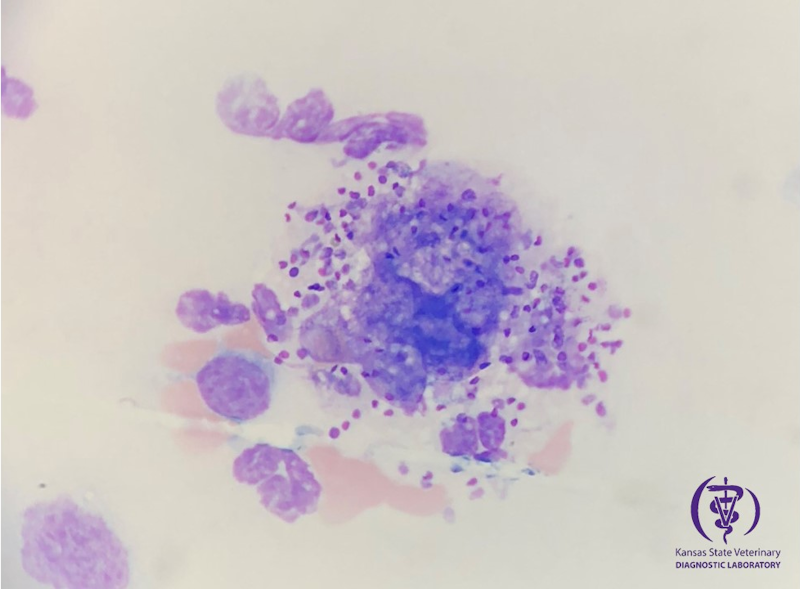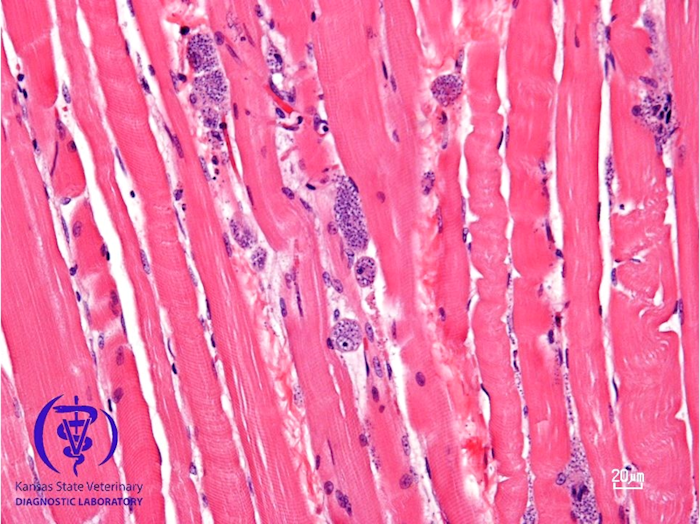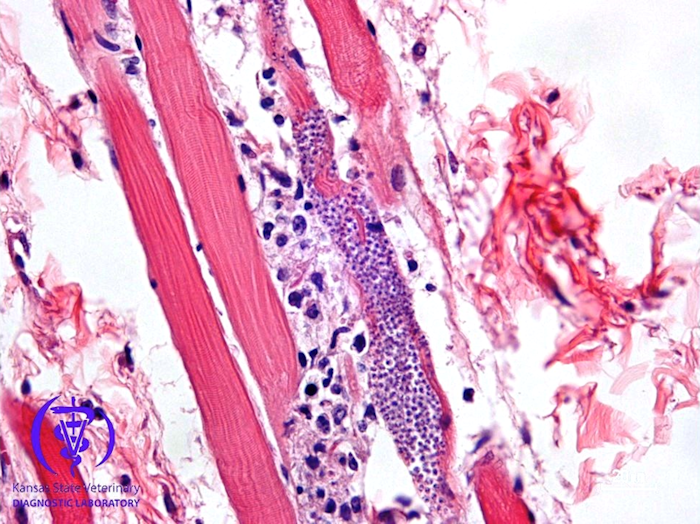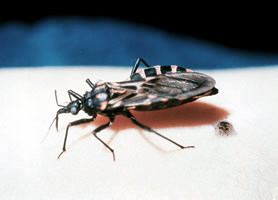
August 2018
Kansas State University Veterinarians and Pathologists work to diagnose a rare case of Trypanosoma Cruzi
Kansas State University faculty have confirmed a case of Trypanosoma cruzi (T. cruzi) in Northeast Kansas. The affected patient showed signs of lethargy, decreased appetite, and pain before evaluation at Kansas State University Veterinary Health Center. CT scan showed generalized lymphadenopathy and a hypoattenuating liver.
|
|
|
| Image 1 | Image 2 |
Complete blood count (CBC) performed by Dr. Diana Schwartz and Dr. Mark Morton revealed an inflammatory leukogram and mild normocytic, normochronic anemia with evidence of many trypomastigote organisms (image 1) and a focal area of moderate amastigotes (image 2). PCR testing confirmed T. cruzi, genotype 1. Full necropsy by Dr. Sarah Schneider and Dr. Argine Cerezo showed generalized parasitism (images 3 and 4 depict the organism in skeletal muscle).
|
|
|
|
Image 3 |
Image 4 |
|
Image 5 |
T. cruzi is a protozoal parasite known to infect dogs, humans, and other mammals, resulting in Chagas disease. T. cruzi is spread through the bite of its insect vector, the kissing (triatomine) bug (image 5). Dogs that consume kissing bugs may also become infected. The parasite may be spread congenitally, or through blood transfusion or organ transplantation. Chagas disease is endemic in South and Central America and is becoming more prevalent in the southern United States, particularly those bordering Mexico. Chagas disease was last reported in Kansas in 2014. The acute phase of infection is associated with flu-like symptoms, while the chronic phase can culminate in heart failure. Unfortunately, treatment options are not readily available and no vaccination exists for this disease.
Treating the environment for insects is recommended to decrease exposure to kissing bugs, and thus T. cruzi. If you are concerned that you have identified a kissing bug, you may reference kissingbug.tamu.edu or contact KSVDL Client Care at clientcare@vet.k-state.edu or 785-532-5650.
Next: Thermal Injury: Garden Hose Scalding Syndrome
Return to Index
